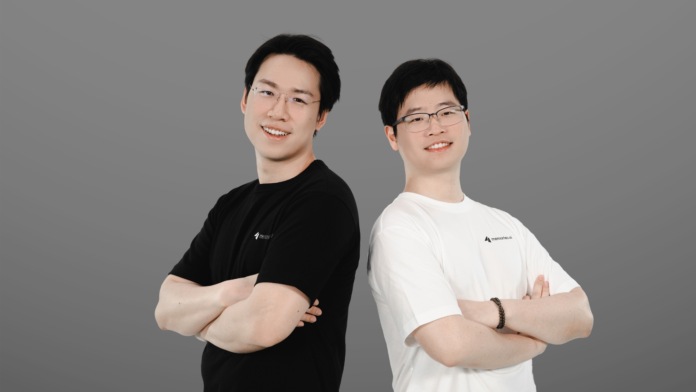Today, many AI tools can look at videos and summarize what’s happening, but things get a little more complicated when you ask the models questions about multiple videos or hours of footage.
This is a big limitation for security companies that want to use AI to analyze thousands of hours of video from different cameras, as well as for marketing companies that want to study different video campaigns and product shoots.
Memories.ai wants to solve this problem with its AI platform that can process up to 10 million hours of video. For companies that have a lot of video to analyze, the startup wants to provide a contextual layer with the ability to search, index, tag, segment, and aggregate.
Its co-founder, Dr. Shaun Shen, was a researcher at Meta‘s reality lab while earning his PhD, and his colleague Enmin (Ben) Zhou worked at Meta as a machine learning engineer.
“All the leading AI companies, such as Google, OpenAI, and Meta, are focused on building end-to-end models. These capabilities are good, but these models often have limitations in understanding the context of a video beyond one or two hours,” Shen told TechCrunch.
“But when humans use visual memory, we’re sifting through a lot of data context. We were inspired by this and wanted to create a solution to better understand hours of video,” he said.
To achieve this goal, the company raised $8 million in a seed funding round led by Susa Ventures and with participation from Samsung Next, Fusion Fund, Crane Ventures, Seedcamp, and Creator Ventures. Shen said that the company initially planned to raise $4 million, but ended up receiving more subscriptions for the round due to investor interest.
“Shen is a high-tech founder, and he is obsessed with pushing the boundaries of understanding video and intelligence,” said Misha Gordon-Rowe, partner at Susa Ventures. “With its solution, Memories.ai can unlock a lot of third-party visual intelligence data. We felt that there was a gap in the market for long-term contextual visual intelligence, which prompted us to invest in the company,” he added.
Samsung Next had a slightly different thesis: Samsung’s investment arm sees Memories.ai’s solution as useful for consumers.
“One of the things we liked about Memories.ai is that it can do a lot of computing on the device. This means you don’t necessarily have to store video data in the cloud. This could open up better security applications for people who are hesitant to install surveillance cameras in their homes due to privacy concerns,” said Sam Campbell, partner at Samsung Next.
Memories.ai says it uses a proprietary technology stack and models to perform the analysis. First, it removes noise from the video and passes the raw data through a compression layer to keep only the important data. Next comes an indexing layer that makes video data searchable (via natural language queries) using segmentation and tags. There is also an aggregation layer that summarizes data from the index to help create reports.
Currently, the startup serves two types of companies: marketing and security. Marketing companies can use the startup’s tools to track trends related to their brands on social media and determine what kind of video they want to make. Memories.ai also provides marketers with tools to create such videos.
The company also works with security companies to help them analyze surveillance footage to identify potentially dangerous actions of people in the video by reasoning from patterns.
Currently, companies that work with Memories.ai have to upload their video library to the platform so that it can analyze clips. But Shen says that in the future, his customers will be able to create a shared drive and synchronize content more easily. The plan is to allow customers to ask questions like: “Tell me everything about the people I interviewed in the last week.”
Shen envisions an AI assistant that can get information about a user’s life from their photos or when they activate their smart glasses. He also sees this technology playing an important role in training humanoid robots to perform complex tasks or helping self-driving cars memorize different routes.
The company currently employs 15 people and plans to use the fund to expand its team and improve its search.
Memories.ai is competing with similar startups such as mem0 and Letta, which are working on creating a memory layer for AI models, although they currently offer limited support for video. It also has to compete with companies such as TwelveLabs and Google, which are working to help AI models understand video.
However, Shen believes that his company’s solution is more horizontal, allowing it to work with different video models.









